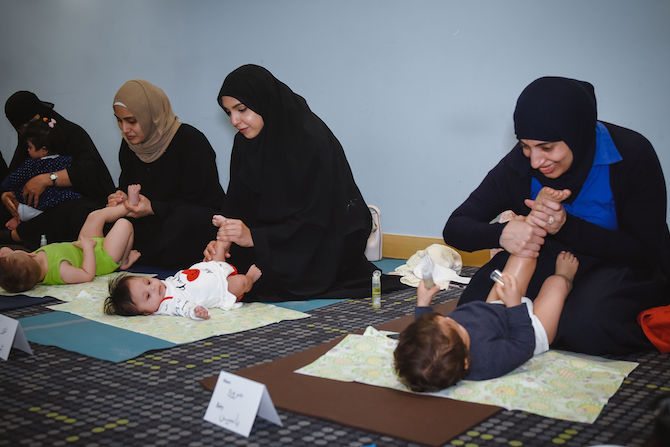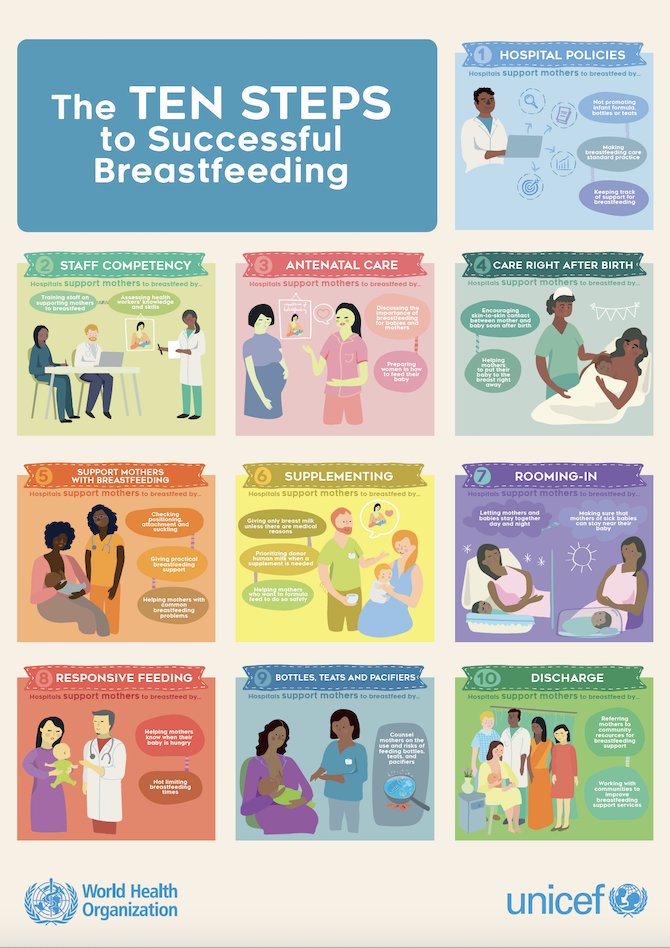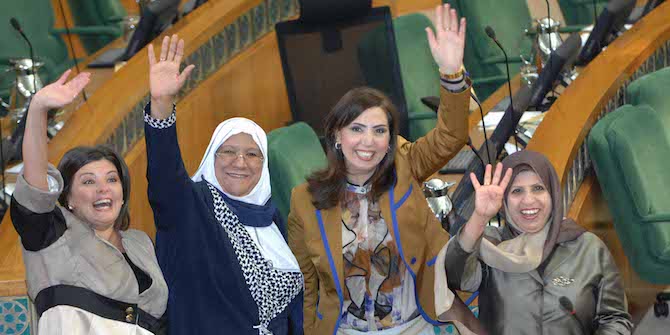by Fatima Boujarwah

A team of unsung heroes in Kuwait is giving their time and sharing their expertise to support mothers with breastfeeding.
Breastfeeding is one of the few health-positive behaviours that is more common in lower income countries than higher income ones. In low-income countries, most infants are still breastfed at 1 year, compared with less than 20% in many high-income countries.
It is a commonly held belief among public health experts, that prenatal care, reducing unnecessary medical interventions during delivery, and breastfeeding, can lead to better health outcomes for mothers and babies, both in the short- and long-term. This has led to an increase in advocacy and awareness activities around the world, related to issues of infant and maternal health, with breastfeeding being a key area of focus.
Optimal breastfeeding practices involve early initiation, exclusive breastfeeding for six months and the continuation of breastfeeding complemented by solid food up to age two and beyond.
The latest Kuwait Nutrition Surveillance System Report indicated that while over 90% of mothers initiate breastfeeding, only approximately 7% of babies are optimally breastfeed at 6 months and only 26% percent receive any breast milk. Sadly, these rates are considerably lower than the (already sub-optimal) global average for rates of exclusive breastfeeding.

There have been numerous calls from advocates for efforts to address this serious public health concern.
The Kuwaiti government has begun to take action. First, by pledging to implement into law the International Code of Marketing for Breast Milk Substitutes, a law that is designed to protect and promote breastfeeding by regulating the marketing of artificial milks and feeding bottles. Second, by implementing the Baby Friendly Hospital Initiative (BFHI), a WHO and UNICEF initiative that is another part of their global breastfeeding efforts. Under the guidance of Dr. Mona Al-Sumaie, endearingly known as the mother of breastfeeding in Kuwait, two hospitals have already received BFHI accreditation (one government and one private) and others are currently actively engaged in the process of achieving accreditation.

The tenth step in the BFHI is to foster the establishment of breastfeeding support groups and refer mothers to them on discharge. This is where BirthKuwait has stepped in to fill a gap. Established in 2011, BirthKuwait is a non-profit, mostly volunteer NGO. The range of services and activities they offer is succinctly captured in their tagline ‘Support, Educate, and Empower.’ They provide educational services such as workshops, lectures, and professional trainings, facilitate support group meetings on a variety of topics and increase awareness and empower families through their social media channels.
In 2014, BirthKuwait launched their Breastfeeding Support Program(BFS), the oldest and largest of their 4 specialised programs (the other three being Childbirth Education, Newborn Care, and Supermoms Support Groups). Their first order of business was to introduce a free support line for breastfeeding mothers. This initiative was founded with three aims:
1) training and recruiting skilled and knowledgeable counsellors,
2) providing accurate, evidence-based information in a supportive and non-judgmental manner,
3) making it easy and convenient for a new mother and a counsellor to connect quickly and as often as needed.
With these in mind, the line was launched as a purely Whatsapp based service, where mothers could send their inquiry as a message and receive specialised professional support.
The support line has been enormously successful, having helped more than 6000 mothers to date. The team has expanded to over 50 trained counsellors (most by completing, at least, the WHO 40 hour training course), who speak more than 10 languages and dialects.
Notably, these passionate and dedicated volunteer breastfeeding professionals overwhelmingly come from non-medical backgrounds. At first, it was a surprise to the industry that counsellors without classical medical training could successfully provide this service. However, experience has shown that in the area of breastfeeding guidance, an individual with appropriate training as a breastfeeding counsellor can be more effective than a physician, whose education generally does not include a deep understanding of breastfeeding.
The ubiquity of the technology has further enabled the team to expand such that the counsellors are based in more than six countries, and serve mothers anywhere in the world. While the majority of mothers that seek support through the line are in Kuwait (approximately 60 percent), the second largest population is in Saudi Arabia, with others having reached out from around the GCC, Turkey, Jordan, Lebanon, and even a handful from Europe and beyond.
In 2016, their hard work and dedication to maintaining the highest standards of ethics and professionalism lead this team to be named by IBLCE, the highest certifying body for lactation professionals, as a Recognized Breastfeeding Support Counselor Organization.
The impact of community-based interventions has been widely documented, with services like counselling increasing exclusive breastfeeding by 20 percent. When combined with improvements in the support of breastfeeding in the health system, they have been reported to increase exclusive breastfeeding 2.5 fold.
The question remains, however, can breastfeeding counselling be effectively delivered over Whatsapp?
To address this question, a multidisciplinary team of researchers is conducting a study to begin to understand the nuances involved in providing support to moms in the, sometimes tumultuous, early days after welcoming a new baby to the family.
After conducting more than 80 hours of interviews with counsellors, and collecting more than 2100 survey responses from mothers, the preliminary analysis indicates that both the mothers and the professionals viewed the interactions positively. Among the early findings included that counsellors perceived that mothers were more forthcoming behind the ‘screen’ of anonymity provided by the text (and often voicenote) interaction and the mothers indicated they felt that privacy was secure. Further, mothers reported trusting their counsellor, and feeling supported as a result of the remote counselling session.
The study further seeks to understand the interesting and unique ways in which the counsellors have appropriated a mainstream app for this purpose, and better understand the pros and cons associated with this form of telemedicine.
While there is a long way to go before breastfeeding rates in Kuwait reach more acceptable levels, grassroots efforts like those discussed here are making waves in the community, and making a difference in the lives of mothers and babies.
This piece introduces a white paper Fatima will be producing as part of the LSE Middle East Centre Reports series, due to be published in early 2020.
Fatima Boujarwah is an Assistant Professor in the Information Science Department at Kuwait University, and was a Visiting Fellow at the Middle East Centre. Her research focuses on the use of technology to promote health and positive behaviour change. She is currently working on a project in the area of telemedicine, to explore ways in which mobile technologies can be developed to support community-based maternity health workers. She is also the director and a founding member of BirthKuwait’s Breastfeeding Support Program. Follow her on Instagram at @fabforgood







